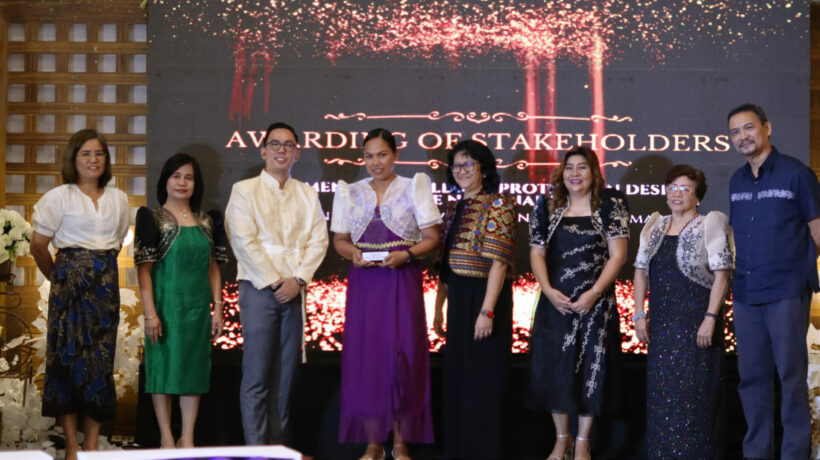by Geri Matthew “Choi” Carretero
Calbayog City, Samar, Philippines — The Subnational Close-Out event for the Sexual Health and Empowerment (SHE) project was successfully held on August 27, 2024, at the Ciriaco Hotel in Calbayog City, Samar, marking the culmination of five years of transformative work in sexual and reproductive health and rights (SRHR) and gender-based violence (GBV) prevention. The event, themed “Pasidungog,” honored the achievements and contributions of local government units (LGUs), community partners, and key organizations who were instrumental in advancing these critical issues in the region.
“Pasidungog,” a Visayan term meaning “to honor” or “to give recognition,” aptly captured the spirit of the gathering, which brought together representatives from municipal, provincial, and regional government agencies, as well as partners from the Department of Health (DOH), Global Affairs Canada (GAC), Oxfam, and the Family Planning Organization of the Philippines (FPOP).
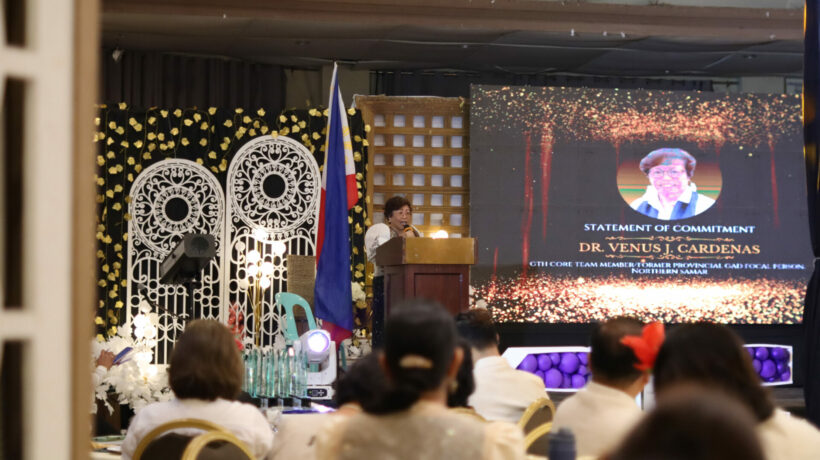
Dr. Venus Cardenas recognizes leaders and health workers for advancing SRHR and preventing GBV.
“The journey over the past five years has been challenging but incredibly rewarding. Today, we honor those who have tirelessly worked to improve the lives of women and girls in our communities. ‘Pasidungog’ is our way of saying that your contributions have not gone unnoticed,” said Dr. Venus Cardenas, a member of the GTH Core Team and former Provincial GAD Focal Person of Northern Samar.
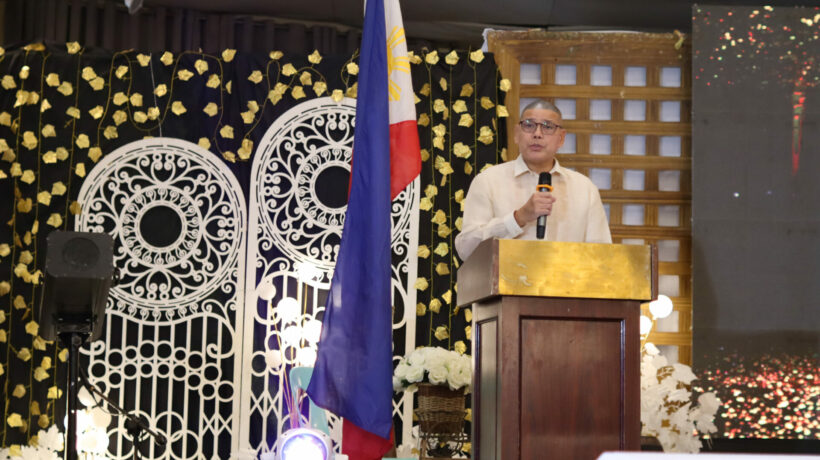
Hon. Felix Panganoron delivers an inspiring message emphasizing the ongoing commitment to SRHR and GBV prevention at the SHE project close-out event.
“The success we celebrate today is rooted in the dedication of our local leaders and community members. As we move forward, it is crucial that we continue to prioritize SRHR and GBV prevention in our policies and programs,” emphasized Hon. Felix Panganoron, Mayor of Sta. Margarita, Samar.
The SHE project, led by Oxfam and funded by GAC, aimed to improve SRHR for women and girls in six underserved and conflict-affected regions of the Philippines. Jhpiego, as a technical partner, played a pivotal role in enhancing the capacity of the public and private health sectors to provide comprehensive and gender-responsive SRHR services.
“Through the SHE project, we have seen real, positive changes in our communities. Women and girls now have better access to the information and services they need to make informed decisions about their health and well-being,” remarked Amihan Liza Jacobe, the Municipal Social Welfare and Development Officer of Victoria, Northern Samar.
“With the support of SHE and its partners, our health facilities are now more equipped, and our health workers better trained to provide gender-responsive services. This has significantly improved the quality of care we can offer to our communities,” stated Dr. Nestor Cailo, Municipal Health Officer of Sta. Margarita, Samar.
“The comprehensive approach of the SHE project has strengthened our health system’s capacity to deliver SRHR and GBV services. This is a legacy that will benefit the people of Eastern Visayas for years to come,” added Hermart Severino, AHDP/Family Planning Program Manager at the DOH Center for Health Development Eastern Visayas.
With continued dedication and the right support, health services in Eastern Visayas have truly become inclusive and gender-sensitive. With a clear roadmap ahead, stakeholders are poised to implement sustainable changes, ensuring equitable access to quality health services for all.
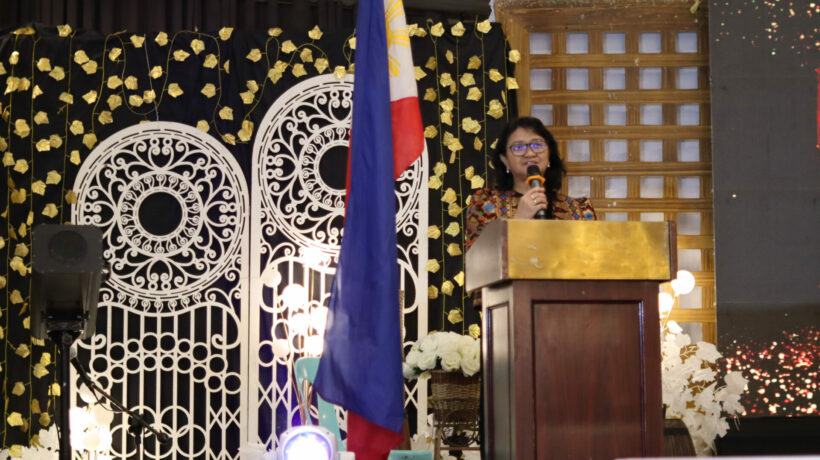
Dr. Ingrid Magnata delivers a keynote address, recognizing the efforts of local leaders and health workers in advancing SRHR and preventing GBV.
“As we conclude this phase of the SHE project, we remain committed to supporting the ongoing efforts to advance SRHR and prevent GBV. The partnerships we have built here in Eastern Visayas will continue to inspire and drive our work in the future,” said Dr. Ingrid Magnata, Country Program Manager of Jhpiego Philippines.
Mary Joy Ducusin, Regional Coordinator and AY Specialist, also emphasized the ongoing work in gender transformation, noting, “In collaboration with DOH Eastern Visayas, Jhpiego is developing a Gender Transformation for Health (GTH) manual, which will soon be endorsed to the DOH central office. This manual will serve as a vital resource in ensuring that gender-responsive practices are integrated into all aspects of health service delivery.”

Plaques of recognition are presented to outstanding community partners and organizations for their pivotal roles in the success of the SHE project.
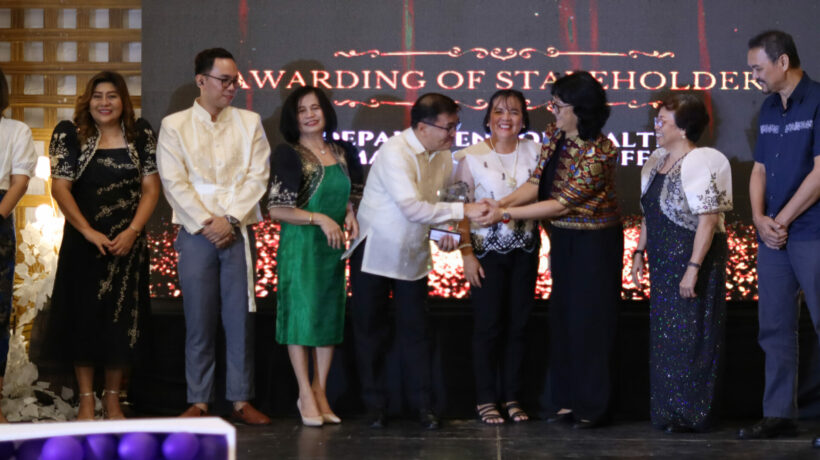
Local leaders and partners receive plaques of recognition for their outstanding contributions to advancing SRHR and preventing GBV during the SHE project’s awarding ceremony.
The “Pasidungog” event in Calbayog City was one of several close-out events organized by SHE, with additional celebrations planned in Northern Mindanao, Zamboanga Peninsula, CARAGA, BARMM, and the Bicol Region, highlighting the nationwide impact of the project and the collective dedication to improving the lives of women and girls across the Philippines.
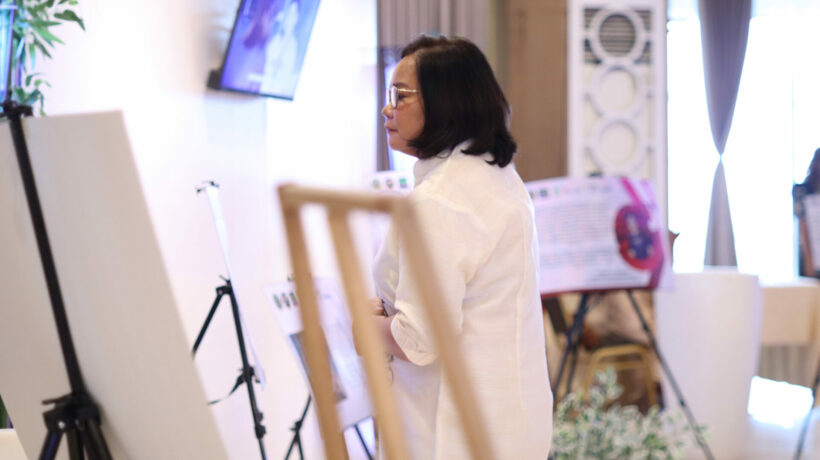
An attendee visits the marketplace display after the Pasidungog event, which marked the culmination of five years of transformative work under the SHE project.
All photo credits: Geri Matthew Carretero
About the writer:
Geri Matthew “Choi” Carretero is a Bicolano multidisciplinary artist, independent curator, and community development worker. He is the co-founder of the Kurit-Lagting Art Collective and a member of the Concerned Artists of the Philippines. And is the Communications and KM Officer, of Jhpiego.
About Jhpiego:
Jhpiego is a nonprofit global leader in creating and delivering transformative healthcare solutions for women and families worldwide. As an affiliate of Johns Hopkins University, Jhpiego has provided support in designing and implementing integrated, high-quality public health interventions for over five decades. Jhpiego also empowers health workers with effective and low-cost solutions, making a significant impact on maternal and newborn health and strengthening the overall healthcare system.


